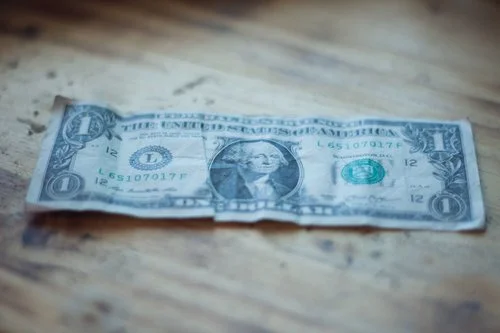What is debt?
Simply, debt is a deferred payment from one person, the debtor, to another, the creditor. Debt is money that you are able to borrow from someone whether that is a bank, company, or another person. People use debt in order to purchase homes (aka a mortgage), buy a car (aka auto loan), get an education (student loan), pay medical bills (aka medical debt), or just live day to day (think credit cards or payday loans).
How can you accumulate debt?
People accumulate debt in many ways. Debt is a deferred payment, but oftentimes when it is time to pay you may owe MORE than your original balance - think interest or fees. Interest is essentially a fee collected by the creditor that is a percentage of the principal debt balance. Overtime, with both the original balance, and interests/fees, debt can begin to accumulate.
Why is the debt industry predatory?
The debt industry often offers itself as a "get out quick” solution for those experiencing financial hardship or need. And while they may offer some benefits in the short term, high interest rates and hidden fees can stack up quickly to bury the debtor in a cycle that is difficult to break. Coupled with loose regulation as well as a general lack of financial education in our society, this creates a dangerous environment for average people just looking for some help.
How was debt built to hurt you?
Debt is a tool that we all use - to make purchases, attend school, settle in a home. But creditors give out loans because they expect a return, and with stacked up interests and fees, that return is often significantly higher than the principal debt balance at the expense of the debtor. That is why, someone can be paying off the “same debt” for years if not decades, while barely paying down any of the original debt. That is also why, if you are able to one day pay off your debt, oftentimes you have now paid two, three, or many times more than what you originally borrowed.
What can I do to help improve my debt?
Start small. Budget your expenses that you have so you can keep track of where your money is going on a month to month basis. Speak with your creditors, so if you fall behind you can work with them to create a payment schedule that fits you. Pay off your bills when you have the ability to do so. And, ask questions. If you are confused or concerned about why an amount is what it is, make sure you find out why.
What is a credit score? How is it determined?
A credit score is a number that credit lenders use in order to determine how much money you can be lent as well as how likely it is that you will repay the loan once it has been given to you. Multiple factors allow these vendors to determine your credit score: bill payment history, debt amount, number of debts, age of debts, types of debts, and number of credit applications submitted.
How do I increase my credit score?
You can increase your credit score by developing a history of timely payment of your bills, paying down your debts, and taking advantage of the online tools that allow you to review your credit score.
How do I check if my credit information is accurate?
Check your credit reports at the three credit reporting bureaus (TransUnion, Equifax, and Experian). Additionally, delinquencies and collection accounts will also be negative elements on your credit report, so it’s incredibly important to make sure the information is accurate. If you find any errors, you will have to dispute those charges with those entities separately.
How should I take care of my bills?
When you pay all of your bills on time, creditors will take this as a sign of financial maturity. By making all of your past bills current, you will positively impact your credit score. Each consumer has the choice to allow credit score companies to have access to their bank accounts to follow their payment history for utility and telecommunication bills.
Should I get a new credit card?
Getting credit cards that are unnecessary can negatively impact your credit score. But, keeping credit cards that are not being used and do not have any annual fees may be helpful as it shows the ability to sustain a credit card while maintaining your credit score.
How do I build up credit?
It takes roughly three months or more to build credit. If you’ve never had a credit card and if you pay off the debts accordingly, you can make positive impacts to your credit score. Or, if you have a history of bad credit, you have the option of opening a secured credit card and paying off that card which can positively impact your credit score.
Are there any other options to get out of debt?
Other ideas of what you can do is work directly with your creditors and make sure that you are actively working to get out of debt, limit the amount of new credit cards, increase the number of payments to decrease your “credit utilization,” and keep balances low on current credit cards. The key to working towards financial independence is patience. The process of getting out of debt is slow and will take time. Be careful of scams offering quick solutions like “Get Out of Debt Quick” and other credit repair or debt relief schemes.Follow these steps, do other research to see what is needed to get out of debt, and move forward to financial literacy.

